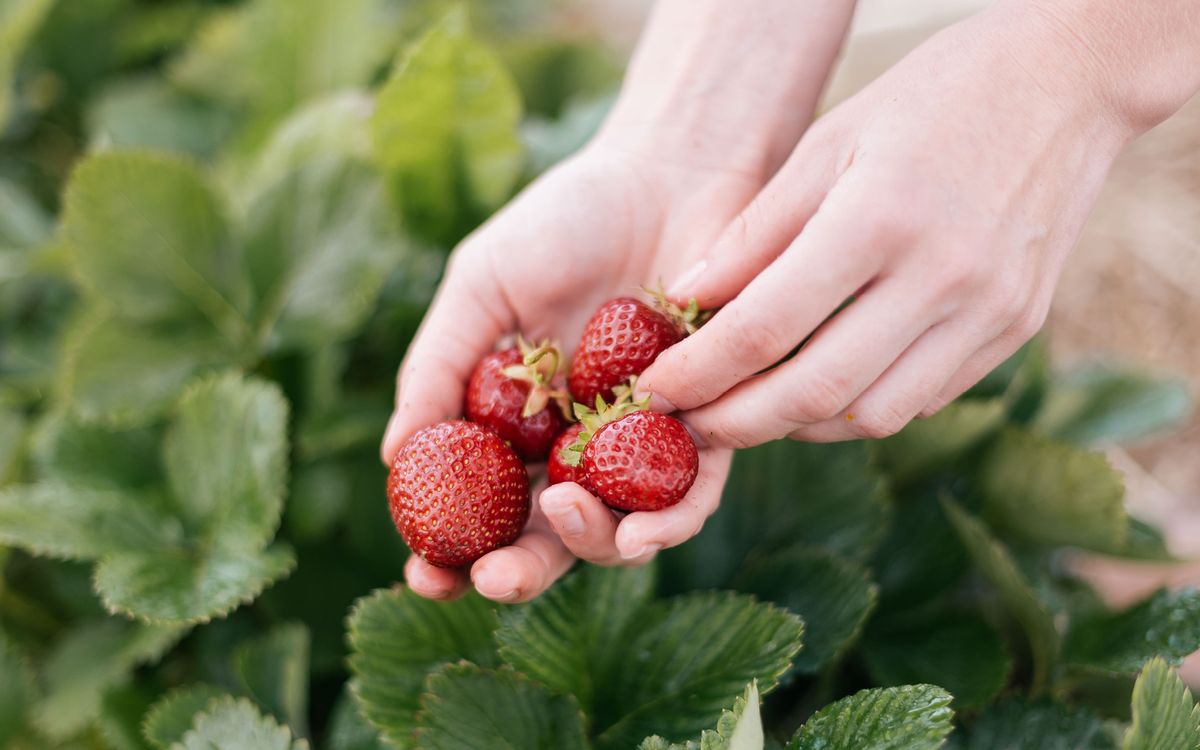A bold and innovative approach to circular farming
Lincolnshire

Dyson Farming produce high-quality food and farmed produce in an innovative way while considering the needs of the land and environment sensitively. Their highly efficient circular farming approach has enabled the Dyson Farming business to reduce inputs and carbon emissions.
Their strawberry-growing operation in Lincolnshire (shown in the image above, supplied by Dyson Farming), is one of their most recent developments. Powered with renewable electricity and surplus heat from Dyson Farming’s adjacent anaerobic digester, the glasshouse currently produces 750 tonnes of strawberries each year for British consumers.
The glasshouse is lengthening the British strawberry season by growing quality strawberries during early spring and late autumn when traditionally British strawberries are in short supply. This is contributing to the UK becoming more self-sufficient in food and reducing the air miles associated with imported fruit.
Objective
To provide planning and landscape design services to help facilitate further growth of the Dyson Farming business through a two-phase development which would deliver over 25 acres of commercial glasshouses and support the advancement of high-tech, sustainable farming in the UK, avoiding unnecessary food miles that come from imported strawberries.

Approach
Rural Solutions have been involved in the project since its inception to ensure a robust approach to planning, with considerations regarding landscape impact as a key driver in shaping the scheme and securing consent for development.
Our planning team prepared and submitted two planning applications, the first in 2019 for circa 15 acres of glasshouses, and a second application in 2022 for phase two of the development which included a further ten acres of glasshouses.
Following phase two permission, our landscape design team designed a detailed, low maintenance scheme focused on native species trees, hedgerows, and species-rich grassland. We specified seed mixes that would not offer any conflict to the fruit crops in the glasshouses.
In addition, we prepared a masterplan and secured planning permission for a development of self-contained cabins to provide quality accommodation for seasonal farm workers working in the glasshouses.
"At Dyson Farming, we take a holistic view of all the assets in the farming business to find new avenues that would complement and enhance the different enterprises. Getting an outside perspective helped us to look at it in very different ways all the options in detail which gave us confidence that we’d fully explored every avenue and identified every possible challenge.
Rural Solutions think and do differently. They are on the front foot, pragmatic and know instinctively where there is most value and what matters. They also genuinely care about the projects they are working on and are in it for the long term. Working with them is a partnership built on strong relationships."
Dyson Farming

Outcome
We were delighted to secure planning consent first time for both phases of work. Phase one, which comprises a 6.7-hectare strawberry-growing glasshouse, has been operational since spring 2021. The build also included packhouse and cold store facilities which allows Dyson Farming to pick, chill, pack and deliver fresh fruit to the end customer as quickly as possible.
Planning approval was granted earlier this year for phase two, a new 4.5-hectare glasshouse extension and trials area.
The overall development is supporting the advancement of high-tech, sustainable farming in the UK, avoiding unnecessary food miles that come from imported strawberries.
Give us a call on 01756 797501 or email info@ruralsolutions.co.uk
We'd be delighted to have a chat.
Wiston: a precedent for the estate and planning sectors
The Wiston WEP (whole estate plan) was the first estate strategy formally accepted as a material planning consideration.
